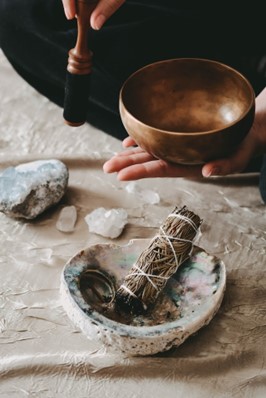
People learn from repetition, and this applies just as well to the development and maintenance of ongoing spiritual practice as it does to any mundane task a person might perform. But what is it that makes rituals and traditions such an integral part of the spiritual experience?
As a person develops deeper connections with spiritual rituals, they undergo a transformation of both body and mind. Not only does the brain change to increase serotonin output, but the connection to their practice translates into a greater sense of connection with the world around them.
Robert Bremer of Ohio says that many people may wonder how to reap these benefits themselves. Luckily for such people, it’s actually rather easy to achieve.
Spiritual Rituals Are Transformative
Most of the credit for the transformation undergone by those who engage in regular spiritual practice belongs to the sheer symbolism many people attach to ritual in general. For instance, psychologist David Feldman uses graduation as an example. There’s nothing special about walking across a stage, yet it’s highly meaningful to the graduates and their families. It is timeless tradition (or ritual) that indicates the successful completion of academic achievements.
Regardless of the ritual or tradition chosen, practitioners can discover a number of benefits. Just a few of these may include:
- A greater sense of stability as a result of regular practice
- Inner peace and a general feeling of well-being
- Feeling more attuned with one’s own emotions
- A non-dualist sense of connection with the world
- Feelings of gratitude and respect for the spiritual lifestyle
How Spiritual Tradition Affects the Brain
While many of the proposed benefits above take root in the mind and soul of the practitioner, spiritual tradition actually leads to neurological benefits as well. Studies on clinical depression suggest that meditation and other spiritual rituals can lead to greater long-term mental health.
Some of these studies focused on white matter, the collective name for the nerve fibers that connect the brain’s neurons. As long as those at high risk of depression engaged in routine spiritual rituals, researchers found their white matter nearly impossible to distinguish from that of those at lower risk.
These subjects also experienced an increase in their serotonin levels, which made it easier for them to regulate their mood. Additionally, they experienced a decreased rate of thinning in their cerebral cortex, helping to reduce future risks of Alzheimer’s and dementia.

Choosing the Right Spiritual Ritual
Bearing in mind the benefits of engaging in spiritual tradition, all that remains is for practitioners to choose the form of spiritual ritual that works best for them. A few types of spiritual practice many choose include:
- Aromatherapy
- Prayer
- Yoga
- Eastern meditation
- Rhythmic breathing
Some even create their own spiritual rituals by creating new traditions, either on their own or with loved ones. Anything from charitable service work to visiting a location of personal significance can be transformed into a spiritual ritual simply by identifying what makes it personally sacred and practicing the convention on a regular basis.
Conclusion
Observance of rituals and traditions can play a major role in spiritual practice, provided practitioners develop deep personal connections to the ritual in question and continue observing on an appropriately regular basis. The level of personal significance will vary depending on both the ritual and tradition, but all who practice can achieve transformative results.



